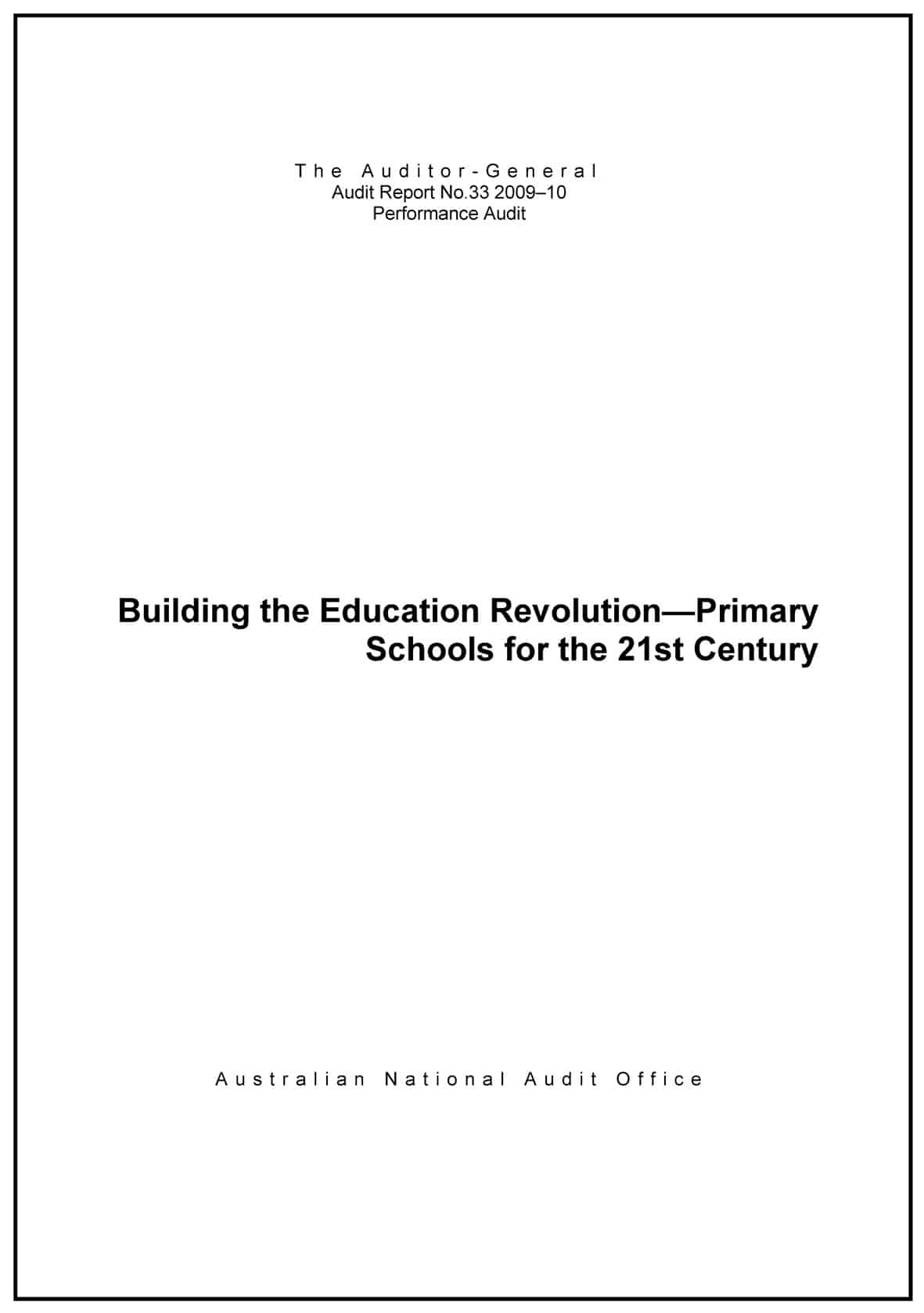 Marcus Priest of the Australia Financial Review wrote a good article on 2 June 2010 (only available through subscription or hard copy) that illustrates the managerial deficiencies of the Australian Government by looking at the lessons from two governmental investigation reports concerning a large-scale construction program for existing schools and the home insulation scheme. Priest identifies several issues that should be noted by those who are designing large projects and who need to deal with the government directly
Marcus Priest of the Australia Financial Review wrote a good article on 2 June 2010 (only available through subscription or hard copy) that illustrates the managerial deficiencies of the Australian Government by looking at the lessons from two governmental investigation reports concerning a large-scale construction program for existing schools and the home insulation scheme. Priest identifies several issues that should be noted by those who are designing large projects and who need to deal with the government directly
Priest’s opening paragraph is:
“The decisions by the Rudd government to try pull (sic) the country out of a recession by spending billions on schools and free home roofing insulation have come to be regarded as worthy ideas that morphed into a disaster of public administration.”
Marcus says that these reports show an overworked public service, unreasonable government expectations, a disconnection between policy and its real-world application and poor assumptions.
 Both reports, the Australian National Audit Office (schools construction program) and the investigation into the home insulation scheme undertaken by Allan Hawke, find that suitable auditing and compliance management processes were not considered at the design phase. Hawke mentions specifically that a payment scheme was devised before the audit process and this related to the OHS expectations. He goes on to say:
Both reports, the Australian National Audit Office (schools construction program) and the investigation into the home insulation scheme undertaken by Allan Hawke, find that suitable auditing and compliance management processes were not considered at the design phase. Hawke mentions specifically that a payment scheme was devised before the audit process and this related to the OHS expectations. He goes on to say:
“While some of the safety and non-compliance issues were pre-empted through risk management and audit planning, it should have been followed by much earlier rollout of a targeted compliance and audit program.”
Priest says that these assessments raise important matters of “co-operative federalism”. It is in this context that the government’s skills and ability to manage become relevant to OHS and, to a lesser extent at the moment, workers’ compensation. Once the legislative harmonisation processes being to click in at the State level, the administration of the above projects may become directly relevant to our understanding of the government’s implementation process. It is reasonable to expect the government to have polished their approach and skills base for the roll out of harmonisation within the next couple of years.
Priest says that the Hawke report says:
“…the states and territories had minimal input into the implementation of the home insulation program eve though the federal government “placed a high reliance on state and territory regulatory authorities”.”
Few States are likely to complain about the degree of access they had to the OHS model law review panel but the consultative period was short and there were complaints at the time about restricted access to the panel and the lack of public seminars and consultation.
Hawke describes one of the problems with the implementation of the home insulation scheme was that
“Resources were tied up with crisis management. DEWHA [Department of the Environment, Water, Heritage and the Arts] is not unique in this regard, but it is a lesson that is not easily learned by busy departments under pressure to deliver large programs.”
This is a timely warning to both state and federal OHS agencies for the coming months of negotiation and consultation on OHS legislation.
Safety professionals often say that OHS is separate from politics. The OHS snobs say it should be above politics. It is a hopeless wish, just like wishing for OHS to be separate from industrial relations (a wish apparently shared by CEO’s according to the recent Wagner report pages 3 & 13). Safety professionals need to have a basic understanding of the political/bureaucratic process so that they may understand some of the peculiar statements and expectations that are made. It will also help them tailor their submissions and target their lobbying so that not only will their suggestions be heard but listened to also.
The two governmental reports that Marcus Priest has juxtaposed do not relate directly to safety but can teach OHS professionals how to “handle” the organisations that “handle” OHS.

One thought on “What can OHS professionals learn from government program failures?”